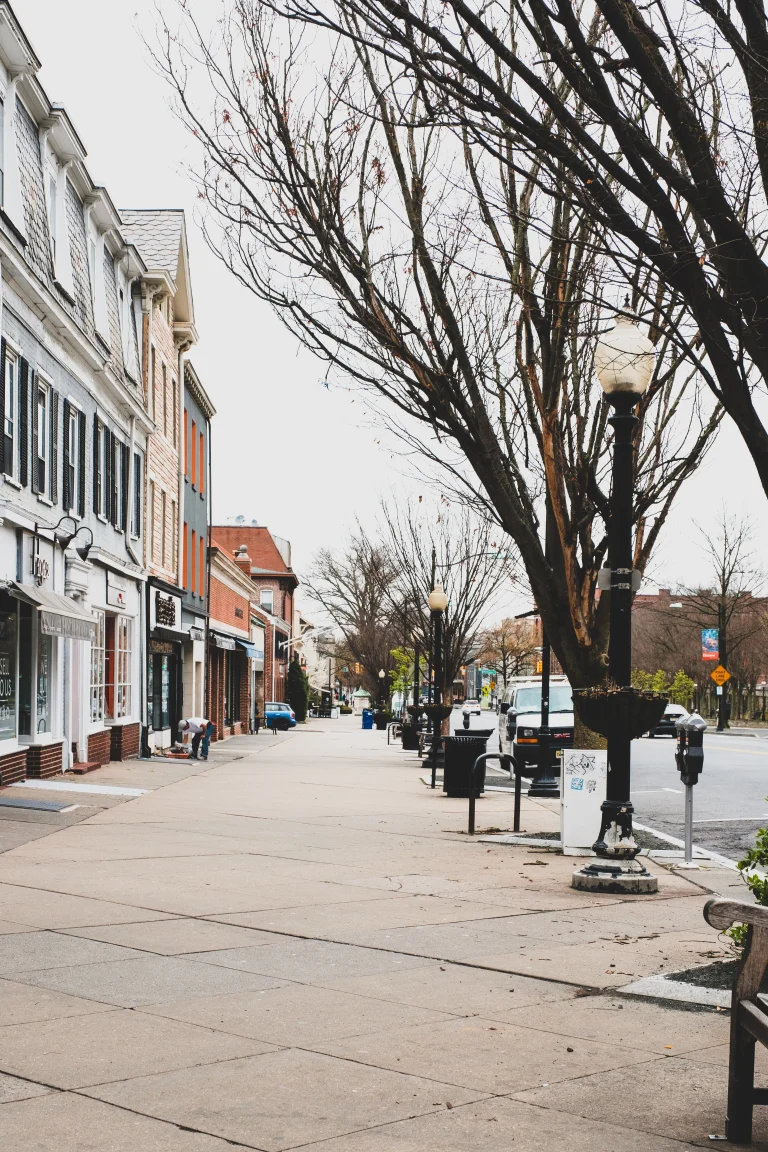Moving From Florida To Georgia: A Detailed Guide
With its southern charm, affordability, and job opportunities, Georgia is an increasingly popular destination for those relocating from Florida. But making an interstate move requires careful planning and preparation.
If you’re short on time, here’s a quick answer to your question: Key steps for moving from Florida to Georgia include researching locations, comparing costs of living, finding a home and job, transferring records, using a moving service, and adapting to cultural and climate differences.
This comprehensive guide covers everything you need to know to make your move from Florida to Georgia smooth and successful. We’ll provide tips on choosing a Georgia city, handling logistics, transferring records, moving your belongings, and settling into your new home and community.
Comparing Cities and Regions in Georgia
When considering a move from Florida to Georgia, it’s important to compare different cities and regions to find the best fit for your lifestyle. Georgia offers a diverse range of options, from bustling metropolitan areas to charming coastal towns and serene rural landscapes.
Here’s a closer look at some of the key regions you might want to explore:
Atlanta metro area
The Atlanta metro area is a popular choice for many newcomers to Georgia. Known for its vibrant culture, thriving economy, and diverse population, Atlanta offers a wide range of opportunities for employment, entertainment, and education.
The city boasts world-class museums, professional sports teams, and a vibrant music and arts scene. If you’re looking for a bustling urban environment with plenty of amenities, Atlanta might be the perfect choice for you.
Savannah and the coast
If you’re drawn to the charm of historic architecture, picturesque streets, and coastal living, Savannah and the surrounding coastal areas are worth considering. Savannah is known for its well-preserved historic district, where you can walk under moss-draped oak trees and explore beautiful squares.
The coastal region offers opportunities for boating, fishing, and enjoying the stunning beaches. Whether you’re a history buff or a nature lover, Savannah and the coast have something to offer.
Smaller cities like Augusta and Macon
For those seeking a more laid-back atmosphere, smaller cities like Augusta and Macon provide a balance between urban amenities and a slower pace of life. Augusta is known for its world-renowned golf courses, including the Augusta National Golf Club, which hosts the prestigious Masters Tournament.
Macon, on the other hand, offers a rich musical heritage and is often referred to as the “Song and Soul of the South.” These cities offer a strong sense of community and a lower cost of living compared to larger metropolitan areas.
Rural northern Georgia
If you prefer the tranquility of rural living and breathtaking natural landscapes, northern Georgia might be the perfect fit for you. The region is home to the stunning Blue Ridge Mountains, which offer opportunities for hiking, camping, and exploring scenic trails.
The charming mountain towns in this area provide a close-knit community feel and a slower pace of life. If you’re looking to escape the hustle and bustle of city living, northern Georgia offers a peaceful retreat.
When comparing cities and regions in Georgia, it’s important to consider factors such as job opportunities, cost of living, climate, and lifestyle preferences. Each region offers its own unique charm and advantages, so take the time to research and visit different areas to find the best match for your needs.
By carefully considering your options, you can make an informed decision and ensure a smooth transition to your new home in Georgia.
Cost of Living Comparison
When considering a move from Florida to Georgia, it is important to understand the differences in the cost of living between the two states. Here, we will provide a detailed comparison of various expenses to help you make an informed decision.
Housing Costs
One of the biggest factors to consider when moving is the cost of housing. In general, housing costs in Georgia tend to be lower than in Florida. According to Numbeo, the average rent for a one-bedroom apartment in Atlanta, Georgia is around $1,200 per month, while in Miami, Florida, it is closer to $1,500 per month.
If you are looking to buy a home, the median home price in Atlanta is around $250,000, whereas in Miami, it is closer to $350,000. However, it is important to note that actual prices may vary depending on the specific location within each state.
Food, Utilities, and Transportation
When it comes to everyday expenses such as food, utilities, and transportation, Georgia generally offers more affordable options compared to Florida. Grocery prices in Georgia are slightly lower than in Florida.
According to the Bureau of Labor Statistics, the average cost of groceries in Georgia is about 3% lower than the national average. Additionally, utility costs, including electricity, water, and gas, tend to be lower in Georgia as well.
Transportation costs can vary depending on your specific needs and location within each state. However, Georgia has a lower average gas price compared to Florida, which can result in savings over time.
If you rely on public transportation, both states have their own systems, but it is worth noting that Atlanta’s MARTA system offers more extensive coverage compared to Miami’s transportation options.
Healthcare and Taxes
When it comes to healthcare, Georgia has a wide range of medical facilities and hospitals that offer quality care. The cost of healthcare can vary depending on factors such as insurance coverage and specific medical services needed.
It is advised to research and compare healthcare options in both states to make an informed decision.
In terms of taxes, Georgia generally has lower income tax rates compared to Florida. Georgia has a progressive income tax system with rates ranging from 1% to 5.75%, while Florida does not have a state income tax.
However, it is important to consider other taxes such as property taxes and sales taxes when comparing overall tax burdens.
Finding Housing and Employment
Research neighborhoods and housing
When moving from Florida to Georgia, it is important to research and familiarize yourself with different neighborhoods and housing options in your new destination. Take into consideration factors such as proximity to your workplace, amenities, safety, and affordability.
Websites like Zillow and Realtor.com can provide you with valuable information on available properties, rental prices, and neighborhood insights.
Look for jobs online and network
Before making the move, start searching for job opportunities in Georgia. Online job portals such as LinkedIn and Indeed can be great resources to find employment options in your field. Additionally, make an effort to network with professionals in your industry who are already based in Georgia.
Attend networking events or join industry-specific groups on platforms like LinkedIn to expand your professional connections.
Consider a temporary rental
If you haven’t secured permanent housing yet, consider renting a temporary accommodation in Georgia. This will give you the flexibility to explore different neighborhoods and take your time to find the perfect place for you.
Websites like Airbnb and HomeAway offer short-term rental options that can be ideal for this purpose.
Update your license and resume
Once you have finalized your move to Georgia, make sure to update your driver’s license and other identification documents to reflect your new address. Visit the Georgia Department of Driver Services website for information on how to obtain a Georgia driver’s license.
Additionally, update your resume and make it tailored to the job market in Georgia. Highlight any relevant experience and skills that will make you a strong candidate for employment opportunities in your new state.
Handling Logistics Before Your Move
Obtain records like medical, taxes, insurance
Before moving from Florida to Georgia, it is crucial to obtain all necessary records to ensure a smooth transition. Start by gathering your medical records from doctors, dentists, and specialists. You can request copies or have them transferred to your new healthcare providers in Georgia.
Remember to update your insurance policies to reflect your new address and find out if there are any changes in coverage.
Additionally, make sure to handle your tax documentation properly. Notify the Internal Revenue Service (IRS) of your change of address and update your information with the Florida Department of Revenue. This will ensure that any tax-related communications reach you at your new location.
Plan timing and make travel arrangements
Timing is essential when moving from one state to another. Consider factors such as weather conditions, traffic patterns, and school schedules when planning your move. It’s advisable to avoid peak moving seasons and holidays to minimize potential disruptions.
Once you have determined the ideal timing, make your travel arrangements accordingly. If you are driving to Georgia, plan your route, book accommodations if necessary, and calculate the estimated travel time.
If you prefer to fly, book your tickets in advance and arrange for transportation from the airport to your new home.
Transfer utilities, memberships, licenses
Prior to your move, remember to transfer or cancel your utilities in Florida and set up new accounts in Georgia. Contact your current utility providers to inform them of your moving date and request the final bills.
On the other hand, reach out to utility companies in Georgia to arrange for new services to be connected on your move-in day.
Don’t forget about memberships and licenses. Cancel or transfer your gym memberships, subscriptions, and any other memberships you have in Florida. Research and find new options in Georgia that suit your needs.
Additionally, update your driver’s license, vehicle registration, and voter registration to reflect your new address.
Hire a moving company or rent a truck
Decide whether you want to hire a professional moving company or handle the move yourself by renting a truck. Consider your budget, the size of your household, and the distance between Florida and Georgia when making this decision.
If you choose to hire a moving company, do thorough research and compare quotes from different companies. Look for reviews and recommendations to ensure you choose a reputable and reliable company. If you decide to rent a truck, make reservations in advance and familiarize yourself with the rental terms and conditions.
By handling these logistics before your move, you can alleviate stress and ensure a smoother transition from Florida to Georgia. Remember to plan ahead, stay organized, and seek assistance when needed. Good luck with your move!
Settling Into Your New Home and Community
Once you’ve completed the logistics of moving from Florida to Georgia, it’s time to settle into your new home and community. Here are some important steps to help you transition smoothly:
Change your address, get a new license
One of the first things you should do after moving is to change your address and update your driver’s license. This ensures that you receive mail and official documents at your new residence. You can visit the Georgia government website for detailed instructions on how to change your address and obtain a new license.
Explore your area and try new activities
Georgia offers a wide range of activities and attractions to explore. Take the time to familiarize yourself with your new surroundings. Visit local parks, museums, and landmarks. Try out new restaurants and cuisine.
Georgia has a rich cultural heritage, so immerse yourself in the local culture and experience everything it has to offer.
Meet neighbors and get involved
Getting to know your neighbors is a great way to feel a sense of belonging in your new community. Take the initiative to introduce yourself and strike up conversations. Attend neighborhood events and join local clubs or organizations that align with your interests.
This will help you establish connections and make new friends.
Find healthcare providers
It’s important to find healthcare providers in your new area. Research and choose doctors, dentists, and specialists that meet your healthcare needs. Ask for recommendations from your neighbors or check online directories for healthcare providers in your new community.
Your health is important, so don’t procrastinate on finding the right healthcare providers.
Register kids for school and pets at vet
If you have children, registering them for school should be a priority. Research local schools and find the one that best suits your child’s needs. Contact the school district to understand the registration process and required documents.
Additionally, don’t forget to register your pets at a local veterinary clinic. They will need routine check-ups and vaccinations to ensure their well-being.
Remember, settling into a new home and community takes time. Be patient with yourself and allow yourself to adjust gradually. Embrace the opportunities for growth and new experiences that come with moving to a new place. Before you know it, Georgia will feel like home.
Conclusion
While moving between states can feel daunting, thorough planning and an open mind will set you up for an exciting new chapter in Georgia. With its southern hospitality, diversified economy, and affordable cost of living, Georgia offers wonderful opportunities for Floridians seeking a change of scenery. Follow the tips in this guide for a smooth interstate relocation. Welcome to your new home in the Peach State!








